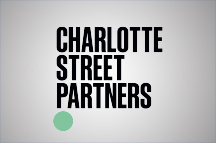“Wise men learn more from fools than fools from the wise,” observed Baltasar Gracián, the 17th-century Spanish philosopher and master of aphorisms. His point was simple: you don’t have to admire someone to learn from them.
Enter our case study: Nigel Farage. Love him or loathe him, he is certainly an enemy to many. Described as “odious” by a former first minister, six in ten Britons view him unfavourably, and his party’s right-wing populism leans on inflammatory lines, divisive rhetoric and frequent misinformation.
Why then, is Reform leading the polls?
Farage the politician may be far from widely adored; Farage the communicator is ruthlessly effective. As Reform gathers this weekend to set out its next pitch, he will almost certainly monopolise the headlines. So, the useful question for leaders with better ideas is what, exactly, they can borrow from the method behind that cut-through.
1. Pick your moment
As communicators, we naturally concentrate on what we want to say. However, Farage reminds us that when is just as decisive.
While the rest of parliament seemed to be dozing in the late summer sunshine, Farage got busy. He propped his deckchair squarely on the immigration agenda, bagging more than 20 front pages and organising more press conferences than there were weeks left of recess. The prized result? Immigration shot up eight percentage points to the issue concerning voters the most.
The Guardian’s Frances Ryan captured it perfectly with a line which must have stung in Downing Street, saying Keir Starmer “could have hardly done more if he had sublet Downing Street out to Farage and washed the towels”.
The takeaway for businesses: picking your moment by beating the crowd and capitalising on news vacuums ensures your voice is the first to be heard.
2. Make it simple
Once you’ve claimed the limelight, the next hurdle is to effectively communicate without losing the crowd.
For all the flimsy facts often found in his speechmaking, Farage’s messages endure and resonate because they’re clear and consistent.
Remember how Brexit was reduced to a three-word instruction that, to the man on the street, sounded like common sense and felt like sovereignty: “Take Back Control.”
More recently, Farage seized advantage of his opponents’ flip-flopping positions on North Sea oil and gas. While Labour’s cautious rhetoric is guarded by procedure and process, and the SNP make more policy U-turns than a CalMac midsummer timetable, Reform’s succinct and unequivocal promise could be scrawled on the back of a beermat: “Start fast-track licences of North Sea gas and oil.” Verb, object, outcome. It may not be sophisticated, or sensible, but it leaves no room for confusion.
There’s a very good reason why M&S revived its trademark ‘food porn’ strapline: “This is not just food. This is M&S food.” Clarity and consistency aren’t niceties. They make messages stick.
So, ditch the industry jargon and verbal gymnastics; if it can’t be said in one breath, it won’t be recalled after one read.
3. Set the stage
If anyone understands the art of stagecraft – it’s Farage. Where others favour a lonely lectern or a bland logo backdrop to deliver their messages, Farage’s team choose symbolic locations to shape and stage a memorable and relatable performance.
Whether he’s bantering with his ‘punters’ in the pub or playing amateur (deportation) dramatics in an aircraft hangar, his symbolic staging offers a bite the front pages and social media simply cannot resist.
Before your next AGM or press launch, consider a setting that’s visually memorable but also appealing and meaningful to your stakeholders. A lifeless location can dampen even the strongest messages; the right setting can lend you its credibility and deliver your story before you’ve said a word.
4. Choose your enemy
Whether it’s Brussels, Westminster, ‘net-zero zealots’ or immigrants, there has always been a ‘them’ to Farage’s ‘us’. He’s a communicator who needs an enemy to create common ground, fuel tribal loyalty, and present himself as the antidote.
Not all brands, causes or organisations need an opposition or face an enemy, but sometimes they can thrive through clever use of contrast. Challenging something bigger than yourself – be it Oatly vs. Big Dairy, Patagonia vs. Fast Fashion, or even just your mission to shift the status quo – is a tried and tested trick to galvanise stakeholders behind your cause.
The most successful businesses step beyond the typical communications playbook and out of their comfort zones. There’s a reason certain voices get attention – political, charitable or corporate – and there’s value in understanding why. Even when we don’t like the message.
So, if we’re taking Baltasar Gracián’s counsel seriously, we should never flinch from studying what makes even our adversaries effective. As he reminds us, we can all learn even from those we most disagree with.













